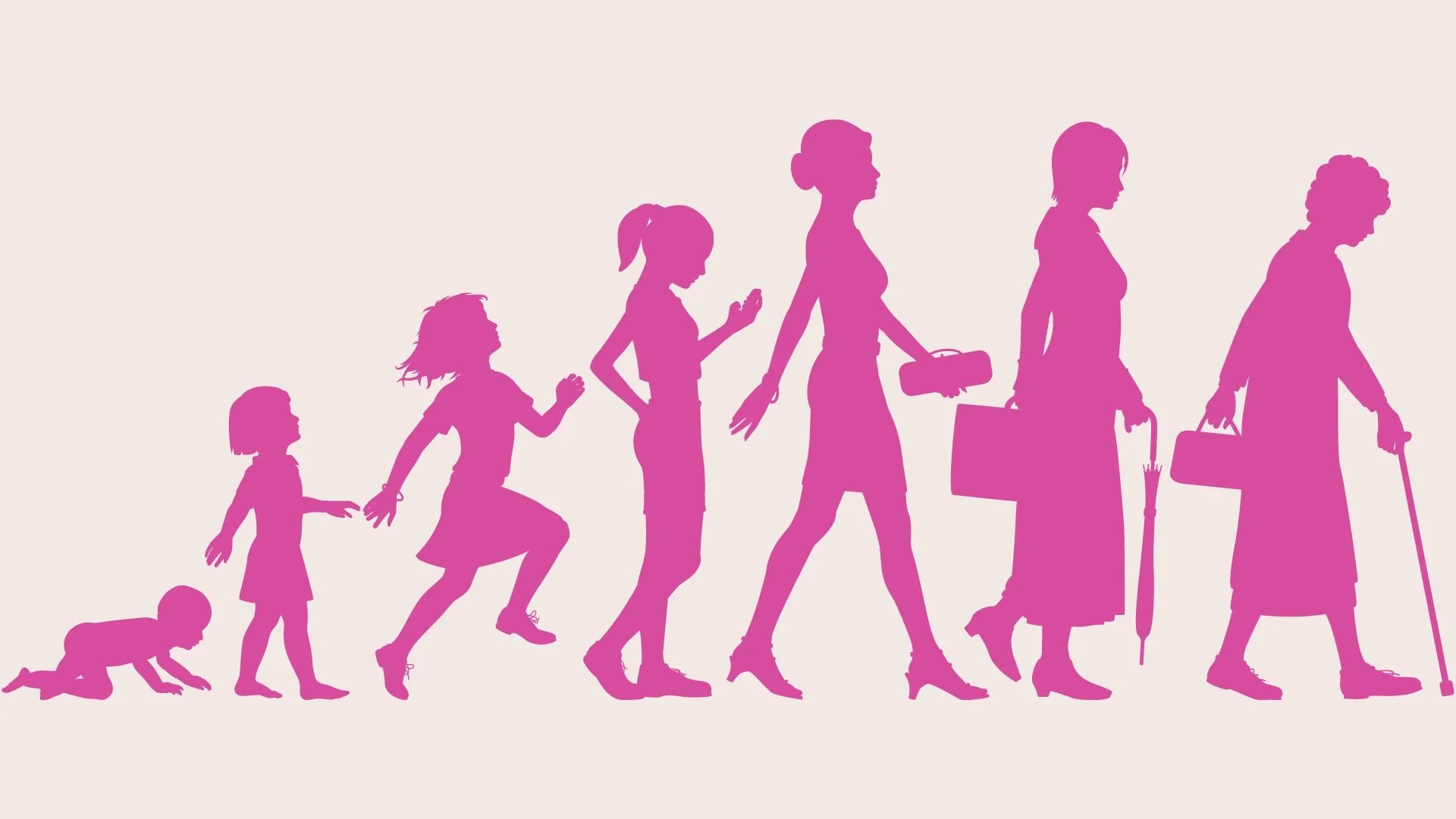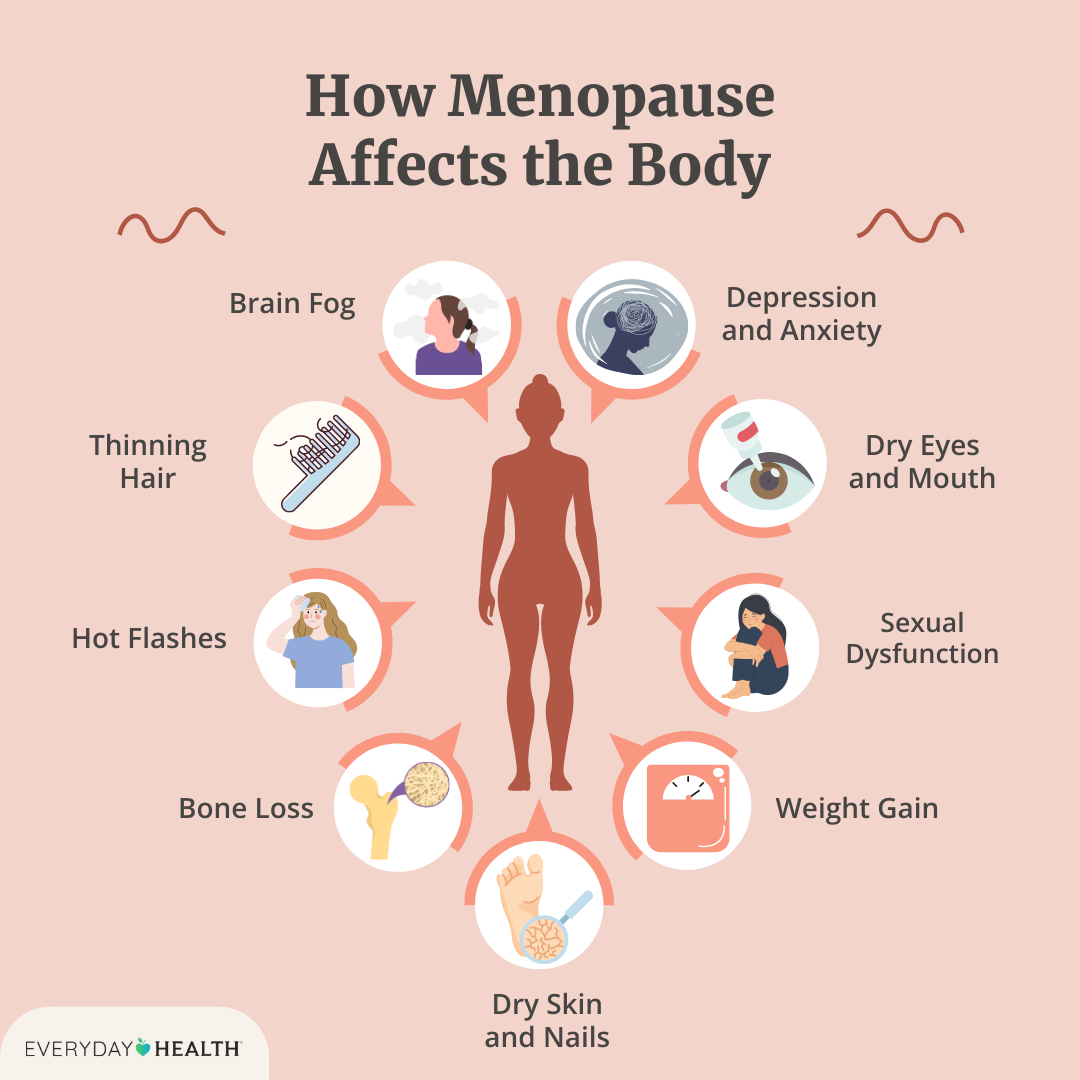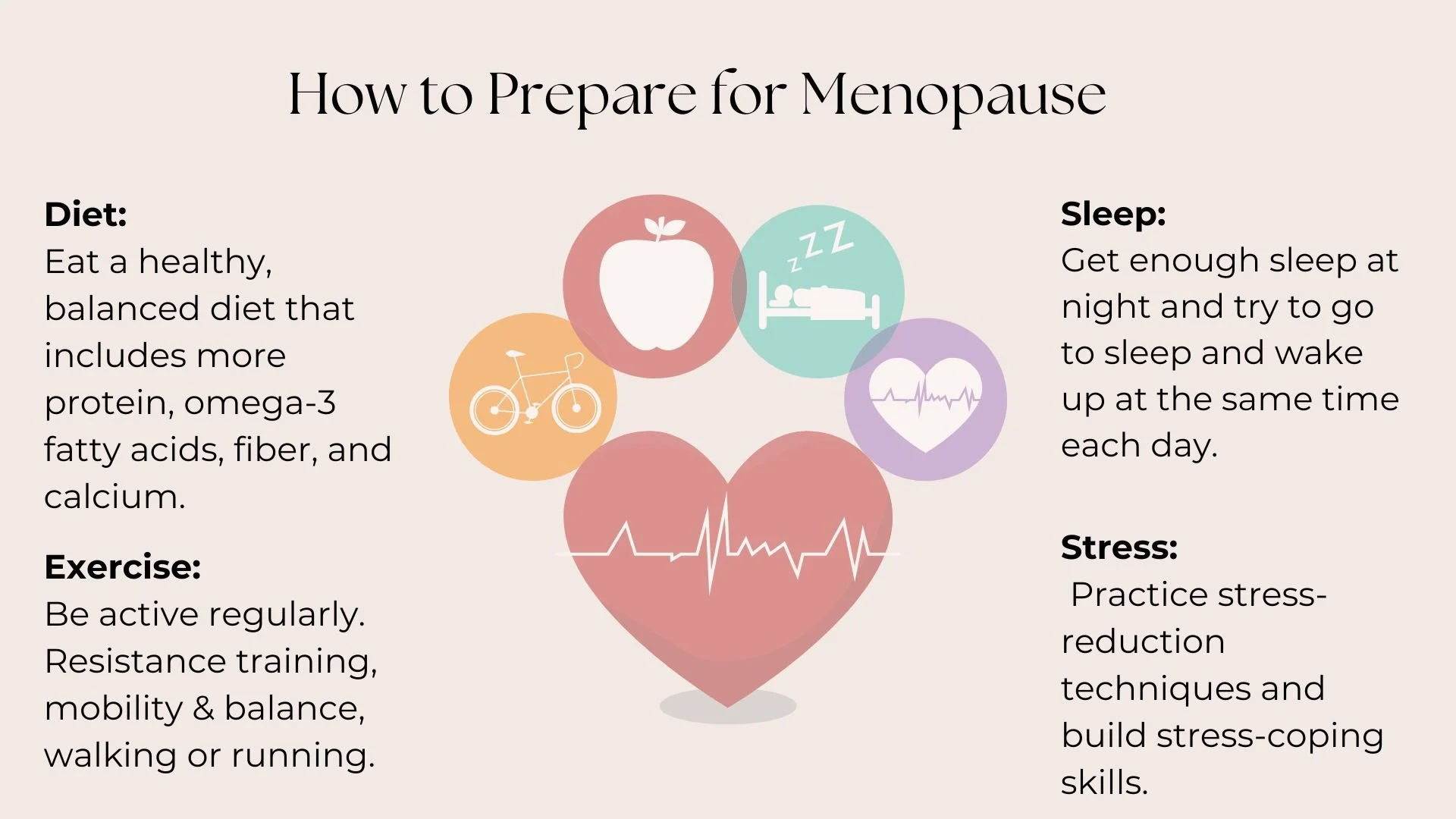Perimenopause, Menopause & Resistance Training
Are you experiencing brain fog, hot flashes, irregular menstrual cycles, or trouble sleeping?
If you’re a woman in her 30’s, 40’s or early 50’s, you might be experiencing symptoms of perimenopause & menopause.
In this week’s article, we are diving into understanding the ins and outs of perimenopause & menopause.
What is happening in your body when this transition occurs
How you can prepare and plan for it
What exercises you can incorporate into your routine to help ease the most common symptoms.
Your ultimate one stop shop for truly understanding the changes in your body, without the mainstream body shaming tactics or misinformation.
The Stats:
Let’s start with the basics:
What is perimenopause and menopause?
Perimenopause: The transitional time around menopause. It is a natural process triggered when your ovaries gradually stop working.
Menopause: When your periods stop.
This entire process from start to finish can last between 2-8 years. The symptoms you experience are caused by the changing levels of hormones in the body, and while there are common symptoms that have been recorded, every woman is different and experiences vary.
Here are some of the most common symptoms women experience:
Image Credit: Everyday Health
To learn more about the hormonal changes that occur, check out my article about the impact of hormonal changes during perimenopause and menopause.
Knowledge is Power -Here’s How to Prepare:
As you know, nothing is cut and dry here. But as you experience perimenopause, there are healthy lifestyle choices that can help ease symptoms.
Throughout my years as a practicing ER physician I’ve seen how heavily lifestyle choices can impact your life. My hope for this article is for it to be an accessible and helpful guide on how you can best prepare and plan to live your life to the fullest. A strong and healthy life you love is the goal here!
Exercise & Resistance Training:
Research shows that any type of physical activity is valuable, but I’m taking it a step further by saying resistance training is the best way to strengthen and nourish your body.
Strength is the key here.
When you work on your strength, you combat waking up in the mornings with aches and pains, losing bone density, weakening your immune system, and even developing chronic diseases.
What does building strength mean?
It means a couple of things for women in their 30s, 40s, and early 50s - building strength and incorporating resistance training is vital in the menopausal transition to reduce the health changes that happen in the years leading up to menopause.
Did you know that women lost 3-8% of their muscle mass after the age of 30?
A study that included 72 women ages 35 to 60, split evenly into three groups: premenopausal, perimenopausal, and postmenopausal showed that the greatest body composition and metabolic changes happened during perimenopause.
The researchers concluded that perimenopause may be the best time for lifestyle intervention, because this is when the onset of unfavorable body composition and metabolic characteristics began.
This is exactly why I recommend resistance training to my premenopausal clients, this helps them maintain muscle as their hormone levels fluctuate and decline.
What is resistance training, what are the benefits, and how can you incorporate it into your routine?
Resistance training: A form of exercise intended to increase muscular strength and endurance.
What are the benefits?
Routine:
I recommend starting out light and building from there. You really only need to resistance train 2-3 times a week to receive the benefits of exercising your body in this way. Habit stack your resistance training, meaning add it on to something you already do in your day to day. Connecting it to something you already do will create an automatic transition!
If you’re feeling unsure this is the right move for you, you’re not alone. Here are the most frequently asked questions I get about resistance training:
Will resistance training make me bulky?
I get this question a lot, and the answer is NO. In fact, lifting heavy weights can help you achieve a lower body fat percentage. Like most exercises, weight training relies on a healthy diet to accompany it. Check out my balanced plate guide!
How frequently do I need to resistance train to see results/feel the benefits?
Honestly? After your first workout you’ll feel a difference, you might not SEE a difference, but you’ll feel the effect it has on your mind & your body. Every movement counts!
How should I start?
Simply put, you just START. At home, in the gym, with a friend, or with a trainer. You start with a little research & understanding of what your body can do right now, you start with small changes, and you build from it.
What should I eat pre & post workout?
There isn’t a hard and fast diet that goes with resistance training, but balance is key. Balance your meals with healthy fats, carbohydrates, and proteins. Your body needs carbs to fuel your working muscles, and protein to help build and repair. Try to eat at least 60 min before your workout and a couple hours after you workout, this can help muscles prepare & recover.
What type of equipment will I need?
If you’re feeling intimidated by the big machines at the gym(I don’t blame you!), start with your body weight and add in barbells. As you get comfortable with the exercises, add in machines (many gyms offer tours and training for machines!)
Before you know it, resistance training will be about the weight you can lift and the strength you gain, not the weight you see on the scale.
If you didn't see your question answered here, feel free to DM me or send me an email! I’d be happy to answer your questions and see how I can help you incorporate resistance training into your exercise routine!
We Can Work Together
Menopause is a natural process, but you don’t have to navigate it alone!
As your health coach, I'm here to help you:
Optimize your nutrition.
Build strength and support your changing metabolism.
Implement stress-management techniques.
Keep you informed & prepared.
I'm here to support you on this journey!
References:
Gould , L. M., Gordon, A. N., Cabre, H. E., Hoyle, A. T., Ryan, E. D., Hackney, A. C., & Smith-Ryan, A. E. (2022, February 28). Metabolic effects of menopause: A cross-sectional characterization of body composition and exercise metabolism. Menopause (New York, N.Y.). https://pubmed.ncbi.nlm.nih.gov/35231009/







